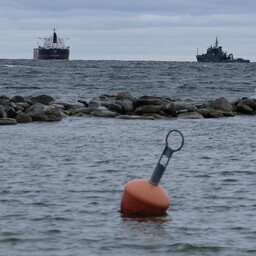The activities of Russia's shadow fleet in the Baltic Sea are becoming more dangerous for Estonia and other countries. According to intelligence data, the Baltic Sea has become crucial for Russian oil exports after Russia's invasion of Ukraine. Currently, at least 60% of Russian oil exports pass through it.
There are constantly a dozen unmarked tankers in the Baltic Sea. Restricting them would help reduce Russia's revenues and military capabilities. It would also reduce environmental risks, as many tankers are in poor condition and lack insurance.
In recent years, there have been additional suspicions that Russian shadow fleet vessels may be involved in security incidents. For example, mysterious drone flights have occurred in Denmark and Germany.
Another major concern is the risk of environmental pollution. According to the Swedish Environmental Institute, 3-5 major accidents could occur in the Baltic Sea over the next 10 years. The damages from a single tanker accident could amount to billions of euros.
However, coastal states have some opportunities to control Russian vessels. For example, they can stop ships that lack a valid flag. Estonia has already begun inspecting the insurance documents of Russian shadow fleet vessels in the Gulf of Finland.
International cooperation is needed to restrict the activities of Russia's shadow fleet. Estonia has started cooperation with 11 other countries to find common solutions. However, currently, only Estonia and the United Kingdom have begun inspecting Russian ships.
French President Emmanuel Macron has expressed a desire to restrict the activities of Russia's shadow fleet. The European Union has already identified 444 ships as shadow fleet vessels and plans to add 118 more ships to the list.

